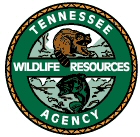LIFE JACKETS AND HELMETS…IT’S TIME TO USE THEM BOTH
 As temperatures and lake-levels rise, Tennesseans are boarding boats and Off Highway Vehicles for outdoor recreation on the state’s copious amount of waterways and trails. But with an increase in outdoor activity also comes an increase in accidents.
As temperatures and lake-levels rise, Tennesseans are boarding boats and Off Highway Vehicles for outdoor recreation on the state’s copious amount of waterways and trails. But with an increase in outdoor activity also comes an increase in accidents.
Boating and OHV accident statistics mirror each other in terms of peak season for accidents: May through September being the most dangerous season for both activities. And while it’s true that some accidents are unavoidable, statistics show that many serious and fatal accidents could have been prevented by wearing two simple pieces of safety equipment: life jackets and helmets. Boaters and OHV riders often avoid wearing these important items for many reasons, but primarily complain about comfort issues. For the record, seatbelts in cars aren’t that comfortable either but they can also save your life.
According to the U.S. Consumer Product Safety Commission, nationally there are over 100,000 annual OHV accidents resulting in several hundred deaths. The CPSC also reports that almost 30% of these injuries involve children under age 16 and that an average of 149 children per year died on OHVs between 2001-2007. As suspected, an approximate 28% of all OHV injuries occur to the head or neck. It stands to reason that helmets could prevent many of these injuries. The same data reports that Tennessee is among the top five deadliest states for OHV accidents.
In an effort to protect young riders, Tennessee has a mandate for helmet wear requiring all riders under age 18 to wear one while riding an OHV on publicly owned or leased lands. TWRA expects to beef up enforcement on its WMA’s and other Agency controlled properties focusing on helmet wear for young riders. Other safety riding gear includes eye protection, boots, gloves, long pants, and a long sleeved shirt. The CPSC also suggests the following OHV safety information:
- Wear a helmet
- Never allow more riders than the vehicle was designed for
- Get certified OHV training
- Stay off paved roads (33% of fatal accidents occur on paved roads)
- Never let a kid ride an adult OHV
- Never ride with a passenger hanging on
On the waterways, state law requires that a child 12 years of age and under wear a personal flotation device while on the open deck of vessel that is underway. While very few people argue with this law, TWRA Law Enforcement and Boating Investigator Matt Majors reports that to date this year, there have been at least 25 accidents resulting in five fatalities. In all cases, the victims were over 12 years of age and life jackets would have likely saved the lives of them all. Annual Tennessee boating statistics reflect a similar trend in the fact that the most of the fatal victims are adults that fall overboard and are not wearing life jackets. Our older boaters need to take a lesson from our younger one’s…WEAR YOUR LIFE JACKET.
Another area that TWRA will be focusing heavily on is in Boating Under the Influence enforcement on area waterways. Last year, Norris Lake accounted for 15 reportable boating accidents tying Chickamauga Lake for the top spot. In an effort to cut down on accidents, TWRA Officers will have extra patrols on Norris Lake on May 17, June 17, July 26, and Aug. 9th. These saturation details will target boat operators that are under the influence of alcohol and or drugs. Checkpoints will be set up at Anderson Co. Park boat ramp, the main channel near river mile 89, and river mile 115 from 7 p.m. -9 p.m. TWRA officers will check vessels for compliance of safety equipment, registration, and operator impairment.









